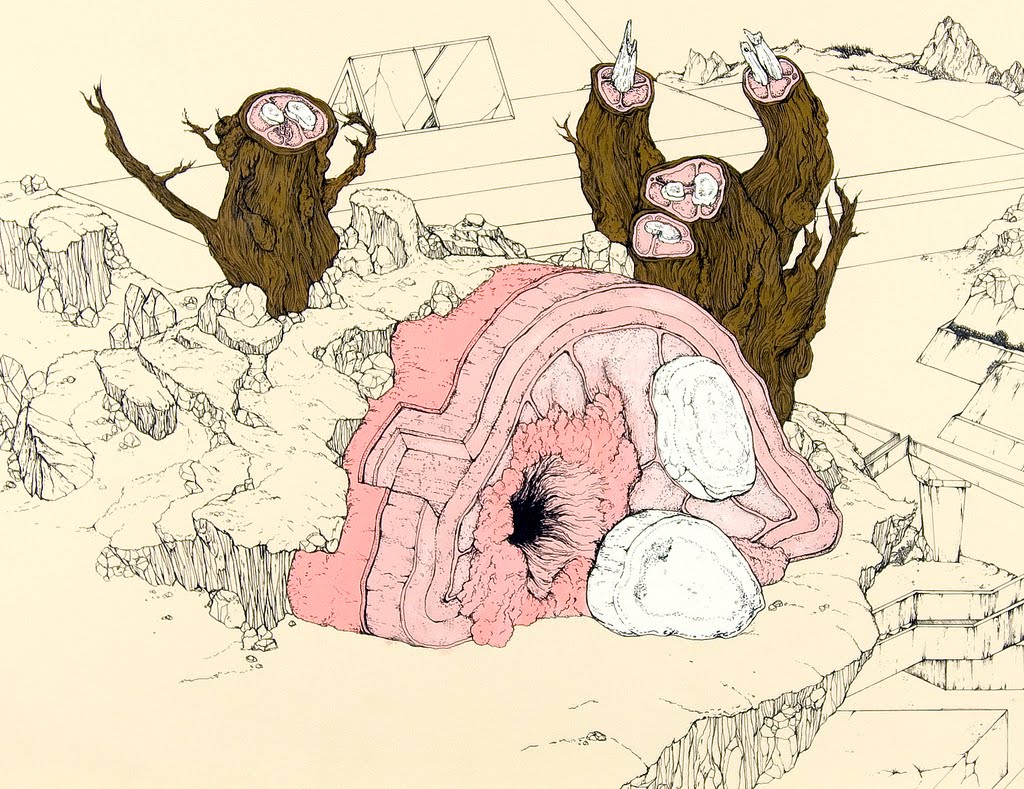Flashing/Animals/Bentham

This is some sort of mood board. ( I appologise in advance for the imminent and surprisingly large font coming up, it was not intentional but just an interesting mistake I decided not to correct.)
Jeremy Bentham's ideas and opinions about the Law, were probably shared with others of his time and times before him. Bentham, being the academic he was, dedicated his life to writing things down, debating and realizing his thoughts on the mater. The initial intentions of "the greatest good for the greatest number" were positive, (to induce happiness) and a radical attempt to revise the terms of justice. Utilitarianism is critisised because pleasing minorities is important too, in principle pleasing the majority is not necessarily the best thing to do. This is supported by his views against the cruelty/ abuse of animals)
(A long while back I drew this bore head as a decorative table piece, after having seen prints like this in Paris that referred to the "first celebrity" chef Antonin Careme- Actually, this is probably not that cruel as if you are going to kill an animal you should use every single part of it constructively in one way of another, but still a relevant because it LOOKS rather barbaric)

His idea and solution to injustice with in the legal system was a product of the times he lived in and the kind of justice that existed at the time. His persistence with the Panopticon penitentiary seems quite cruel to us, as we will sympathize with the psychological effects this has on the individuals. There are cases in modern history where the panopticon design (used as a penitentiary and "asylum") has been abused by governments/individuals/institutions/parties who have take advantage of them and others examples where the Panopticon have allegedly caused mental un-health, which is contradictory to Benthams ideas about crime and punishment. He believed that prisoners should be kept healthy but that prison was a place for punishment (n/b which it still is although it is often more a place meant to keep dangerous people separate from the rest of society). Bentham recognised that punishment is something could be enforced through architecture, in fact the fact that architecture has got a massive effect on a persons psyche is something that many modern architects have tried to use to the advantage of people's well-being.

I want to show Jeremy Bentham as some sort of hero who saves animals- a metaphor for his favor of individual and economic freedom, the separation of church and state, freedom of expression, equal rights for women, the end of slavery, the abolition of physical punishment (including that of children), the right to divorce, free trade, usury, and the decriminalization of homosexual acts. These are all excellent things to be associated with. Jeremy Bentham was a radical thinker and contributed significantly to the modernization of criminal justice and the law (He also made two distinct attempts during his life to critique the death penalty.) However while I create this small film/animation I want bear some rather large ideas comparing and displacing some of Bentham's ideals relative to more modern ideals about punishment, social behavioral problems and rehabilitation and moral/social education as well as the inhibitions cause by "constant surveillance".
Utilitarianism (i.e. if the majority are made happy by the suffering of a minority, an acute criticism yet all things are possible so lest not ignore the probability of all possible out comes) and.....
The Panopticon and the negative effects it can have on mental health as well as the positive principles behind this kind of punishment. Similarly this involves the possible issues involved with these problems; "if to punish criminals to the extent where their environment has depleted their mental health, reducing them to paranoia and depression, which are things which can lead a criminal to not understand his/her punishment and feel just emotional anguish and intellectual/moral confusion then this is contradictory to utilitarianism and not a learning mechanism to help rehabilitation."
Surveillance: Dark times indeed- although perhaps not as bad as mediaeval times when you would get your hands chopped of for thieving a loaf. So I thought about the Panopticon in relation to the constant surveillance of CCTV. Is it in fact a deterrent? Perhaps all it is, is data in a machine? Is surveillance necessary to solve or counter effect wide spread social disorder? Surely the reputation of who ever is watching (as perceived by the subconscious of the observed individual/s) is paramount when considering this theory? If someone doesnt respect who is watching, or look up to them in any way, they are not really going to care about what they think. How about in the Panopticon? And what do existing examples of Panopticon's tell us about surveillance?









0 comments:
Post a Comment